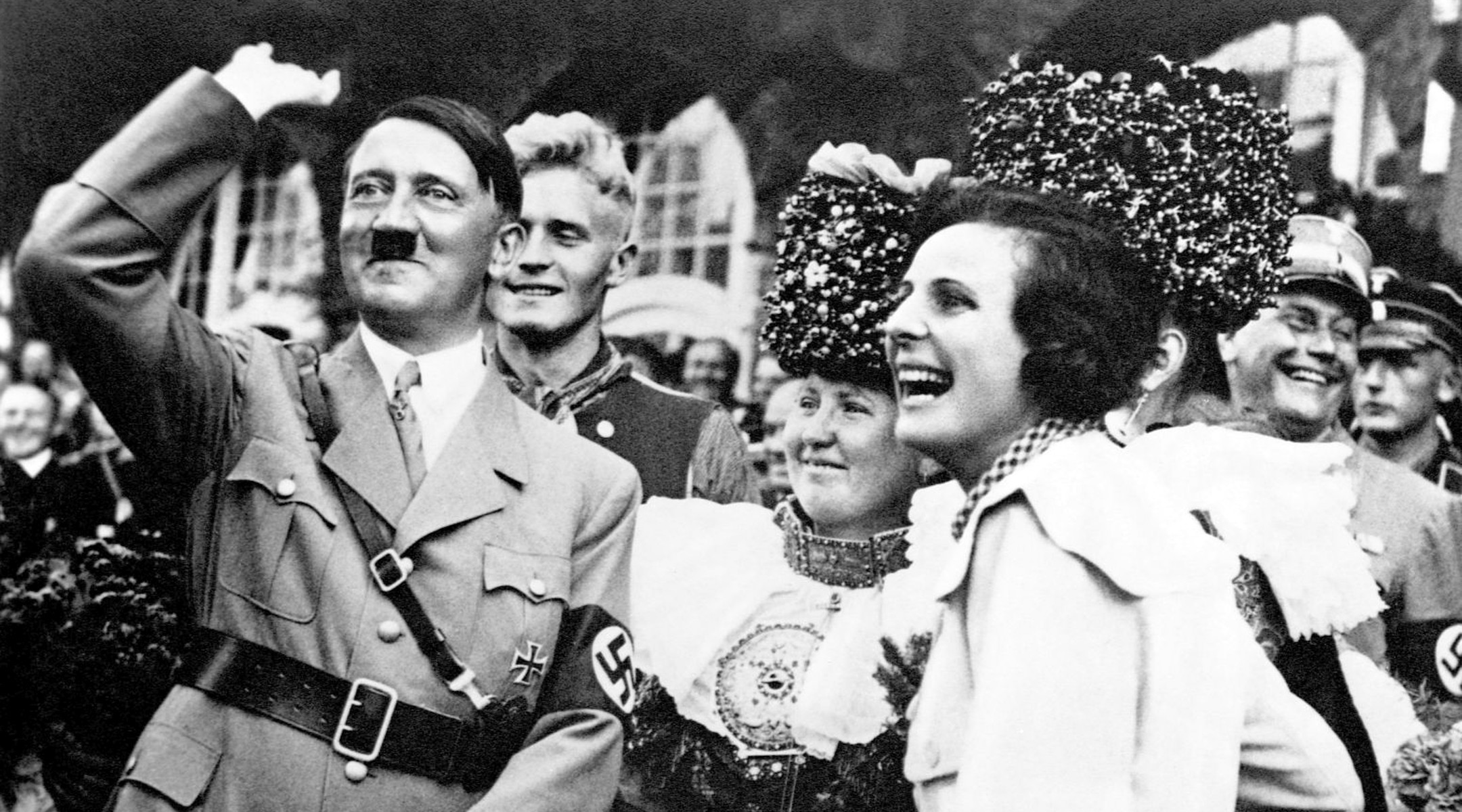Leni Riefenstahl’s Nazi sympathies ran deeper than she admitted, a new documentary about the director argues
The new documentary “Riefenstahl,” which premiered at the Venice Film Festival, takes a critical look at the “Triumph of the Will” filmmaker

Adolf Hitler with filmmaker Leni Riefenstahl during a Nazi rally in Nuremberg, Germany, 1934. (History/Universal Images Group via Getty Images)
(JTA) — The Nazi film propagandist Leni Riefenstahl remained a true believer in the party her entire life, and may have played an active role in at least one mass slaughter of Jews, according to a new documentary that seeks to upend accepted wisdom about the filmmaker’s complicity in Nazi atrocities.
“Riefenstahl,” which premiered Thursday at the Venice Film Festival to rave reviews, is a fresh look at the “Triumph of the Will” director, who died in 2003 at the age of 101. The film draws on access to Riefenstahl’s personal archive, which was only recently made available to the public after the death of her husband in 2016.
Director Andres Veiel focuses on dismantling the narrative Riefenstahl had carefully refashioned for herself in the postwar era: that of a naive German artist who only worked for Hitler because those were the resources available to her, and who was shocked to learn of the full scale of Nazi atrocities after the war. Riefenstahl, who later enjoyed a long career as a photographer, encouraged this rehabilitation by publishing her memoirs and commissioning a documentary much more favorable to her in the 1990s.
But Veiel and his producer Sandra Maischberger, who interviewed Riefenstahl for her 100th birthday in 2002, say that image of the filmmaker isn’t true — and present new evidence they say shows her complicit in and largely aware of the Nazis’ aims.
“We see it with our populist leaders. They just lie,” Veiel told Deadline. Calling his film a “detective story” to unearth the truth about the filmmaker, he said that both her filmmaking technique and campaign of untruth have modern-day echoes in Russia’s invasion of Ukraine and in Donald Trump’s presidential campaigns.
Though Reifenstahl reportedly destroyed large portions of her own archives, her records still demonstrate that she continued to maintain good relationships with fellow Nazis for decades — including Albert Speer, Hitler’s architect and the subject of another recent documentary challenging his postwar rehabilitation efforts — and made comments supportive of Nazi ideology to German Nazi sympathizers who reached out to her.
She also may have played an active role in a September 1939 massacre of Polish Jews in the town of Końskie, where Riefenstahl was filming Hitler’s Polish invasion. The town was home to around 6,500 Jews before the war, nearly all of whom were driven out and later perished in the Treblinka camp.
On the day Riefenstahl visited, Nazi soldiers would slaughter 22 Jews. She would later deny having any knowledge of the killings. But citing a letter from Riefenstahl’s files, the documentary says it was her stage directions — specifically an order interpreted as “Get rid of the Jews” — that likely fueled the mass killing.
As part of her postwar correspondence, the director also kept a file on hand labeled “Jews” — filled with negative letters she received from Jews.
Riefenstahl kept much of this from the public after the war, and continued to be feted by the American film community, owing to her innovative filmmaking techniques used in “Triumph,” “Olympia” and other Nazi-era films.
Several other Venice premieres this year also deal with Nazi and Holocaust themes, including a new documentary about the unreleased Jerry Lewis Holocaust movie “The Day The Clown Cried”; “Marco, the Invented Truth,” a drama about the Spanish fraudster Enric Marco, who falsely claimed to have survived the concentration camps and became a spokesperson for Spanish Holocaust survivors; and “The Brutalist,” a historical drama starring Adrien Brody as a Holocaust survivor who becomes an architect.
Another film premiere, “September 5,” is a drama about the 1972 Munich Olympics, where 11 Israeli athletes were murdered by Palestinian terrorists — and where Riefenstahl also worked as a photographer.















